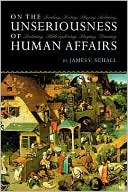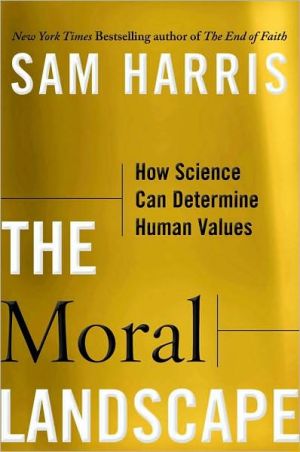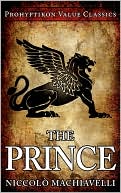On the Unseriousness of Human Affairs
Search in google:
"James Schall has reminded us of an eternal verity: that great wisdom can to be found in things considered foolish. In an age where our discussions are all too grim, this book opens the window to a fresh, reorienting breeze."—Frederica Matthewes-Green"Professors only very rarely possess Schall's combination of erudition, thoughtfulness, clarity, and self-confidence. —Peter Augustine Lawler, Professor of Political Science, Berry College "Although the prolific Rev. James Schall is a theologically informed political philosopher, have no fear. He writes good, clear English. And non-Catholics need not worry about being fed narrow sectarianism or political dogmas. Father Schall's favorite authorities include not only Aristotle and Aquinas, but such moderns as Samuel Johnson, Leo Strauss, and Eric Voegelin—not a Catholic among them. —Eugene Genovese, The Washington Times. "Another gem from Fr. Schall, that combines delightful readability with utter practicality. A worthy successor to Joseph Pieper's classic Leisure, the Basis of Culture. Schall is the best literary matchmaker I know: after you read him you just have to go out and buy a dozen great books, which, having been his lifelong friends and sources of wisdom, become yours. His latest book is (as befits a lover of Chestertonian paradoxes) Countercultural, and therefore culturally relevant; unserious' and therefore serious; personal and particular and therefore universal. —Peter Kreeft, Professor of Philosophy, Boston College To the ears of ceaselessly busy and ambitious modern Westerners, it will come as a shock, and perhaps as an insult, to be told that human affairs are "unserious. But this fundamental truth is exactly what James Schall, following Plato, has to teach us in this wise and witty book. Schall cites Charlie Brown, Aristotle, and Samuel Johnson with the same sobriety—the sobriety that sees the truth in what is delightful and even amusing. Singing, dancing, playing, contemplating, and other "useless human activities are not merely forms of escape from more important things—politics, work, social activism, etc.—but an indication of the very nature of the highest things themselves. On the Unseriousness of Human Affairs is an instructive volume whose countercultural message is of vital importance. Publishers Weekly Although Schall's title might seem to promise a romp through the Elysian Fields with Epicurus and Nietzsche, nothing could be further from the truth. Recruiting philosophy and literary theory into an inspirational narrative, Father Schall (A Student's Guide to Liberal Learning), who teaches at Georgetown University, contends that "unseriousness" derives from the realization that while humankind is not the highest thing in existence, human beings are good. Humanity's joy, then, comes in its celebration of being-in-the-world; those enjoyable activities, which might seem like wasting time, are in fact related to "our transcendent destiny," our spirituality. Taking passages from Plato, Augustine, Aquinas, Dante and Chesterton, Schall argues that our lives have a particular gravity, but that they are unserious compared to the seriousness of God. Our lives are merely, then, responses to an order that exists beyond us, and Schall demonstrates through readings of philosophers ranging from Aristotle to Peanuts' Charlie Brown that various unserious behaviors playing, dancing, singing, writing provide the skills to connect to that transcendent order. For example, he observes that "[e]ssays keep us alert to the wonder of things," and "[l]etters keep us in touch when we are not literally before those whom we would see face to face." Schall weaves together his meditations with theological interludes in which he explores briefly such topics as redemption, salvation and eschatology. Although these reflections do not break any new ground or open up any radically different channels of discussion, Schall's book will appeal to fans of C.S. Lewis, Chesterton and Peter Kreeft. (Nov.) Copyright 2001 CahnersBusiness Information.
IntroductionxiChapter 1Ludere Est Contemplari: On the Unseriousness of Human Affairs1Chapter 2On Teaching and Being Eminently Teachable15Interlude IOn the Fate of Academic Men29Chapter 3Truth and the College of Your Choice33Chapter 4On the Education of Young Men and Women43Interlude IIContemplata Tradere59Chapter 5On the Mystery of Teachers I Never Met63Interlude IIIOrder83Chapter 6On Intellectual Poverty87Chapter 7On Wasting the Best Years of Our Lives97Interlude IVSelf-Discipline107Chapter 8On the Teaching of Political Philosophy111Chapter 9On the Pleasure of Walking About Derby125Interlude VThe End of All Things135Chapter 10A Last Lecture: On Essays and Letters139Chapter 11Philosophy: Why What Is Useless Is the Best Thing about Us149Conclusion165Appendix169Notes171Bibliography179Index185








